Learn more about Saudigitus on their website: https://saudigitus.org/
The DHIS2 Annual Conference takes place from 15-18 June 2026! Learn more
The DHIS2 Annual Conference takes place from 15-18 June 2026! Learn more

With the help of DHIS2 experts, Guinea-Bissau used DHIS2 core software and custom apps to streamline clinical, lab, travel certification, and vaccination processes for COVID-19
Guinea-Bissau has used DHIS2 for health information management since 2011, and it was one of the first countries to adopt the DHIS2 COVID-19 Surveillance packages shortly after their release in March 2020. This included Point of Entry screening, case investigation, and tracking of quarantined travelers and health isolation and follow-up of confirmed cases. The implementation process involved localization — especially translating the package metadata and guidance into Portuguese — and adaptation to local requirements, and was carried out with the support of Saudigitus (HISP Mozambique), the National Institute of Health, UNDP and WHO.
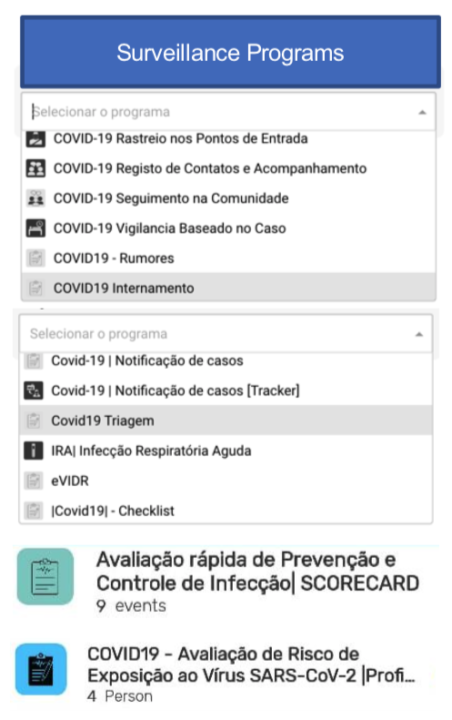
The decision-making process that led to the selection of DHIS2 as the national platform for COVID-19 data was not straightforward, however. In the beginning, several other options were discussed. An Excel and Access-based tool was introduced for collecting lab data, which functioned in parallel to DHIS2, leading to information being stored in silos.
The government of Guinea-Bissau appointed a high commission for COVID-19 response, and one of their key challenges was coordinating all coronavirus-related activities and information systems. Saudigitus — an established HISP group with years of experience providing DHIS2 support to the Lusophone community — was invited to participate in the review process.
Laboratory testing is a key component of COVID-19 Surveillance, and an effective response requires having a system where data on suspected coronavirus cases, their contacts, and their testing results can all be seamlessly integrated. The situation in Guinea-Bissau at the start of this review was far from seamless. Lab data was entered in Excel and stored in Access databases that were not linked to the centralized health data system, and testing results were sent back to health facilities on paper forms, where they would need to be manually entered in order to be added to the national DHIS2 COVID-19 surveillance system.
Saudigitus was asked to bridge the process gaps, and facilitate the integration of data between these different systems. The first step was to expand the DHIS2 COVID-19 system from contact tracing into the lab testing context. This was done by creating an “Index Case” app, which linked patient data stored in DHIS2 Tracker with lab results, and allowed labs and health facilities to print COVID-19 test results directly from the DHIS2 system, and simplified the process of informing both patients and health workers responsible for contact tracing of positive test results.
The need for new tools did not stop with positive test results. Under travel restrictions introduced by the government of Guinea-Bissau, travelers were required to demonstrate that they had tested negative for COVID-19 before they could be approved for air travel. A black market for negative COVID-19 test results promptly sprang up, and due to the absence of a centralized, searchable database where results were stored, it was very difficult and time consuming for authorities to determine which results were legitimate and which were falsified. The integration of test result data into DHIS2 made this validation possible via a QR code that was included on the lab results PDF produced by the DHIS2 system, and Saudigitus developed an Android app that enabled border authorities at Ports of Entry to perform this validation electronically by scanning the QR code on their mobile devices.
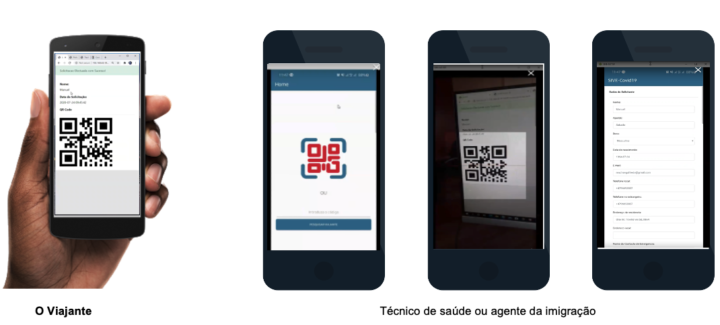
The next challenge Saudigitus was asked to address was how to make the COVID-19 screening process at the Ports of Entry less cumbersome. The ability to enter cases directly into DHIS2 was helpful, but even with minimal data entry and temperature checks for incoming travelers, the waiting lines at the borders and airports were getting very long. To solve this problem, they developed an app that travelers can access via a public web portal where they submit their biographical data directly into the DHIS2 system. The traveler gets a system-generated code which the health worker performing their entry screening scans into their mobile device to access the traveler’s record in DHIS2. All the health worker needs to do at that point is verify the data, enter the traveler’s temperature, cutting down the time spent on data entry per person, and thus the amount of time that all of the other travelers have to spend waiting for their turn.
Another area where long waiting times led to innovation was the queue for scheduling COVID-19 exams, since the opening of borders for travel led to a large number of people wanting to request exams at once. To help address this, Saudigitus created an online form where members of the public can submit their request for a COVID-19 test, and which uses the biographical information they submit to create a Tracker record for them in DHIS2, so that this information is already entered into the lab testing system before they arrive to be tested. This system also makes it easier for testing centers to forecast test demand, for better allocation of resources and personnel.
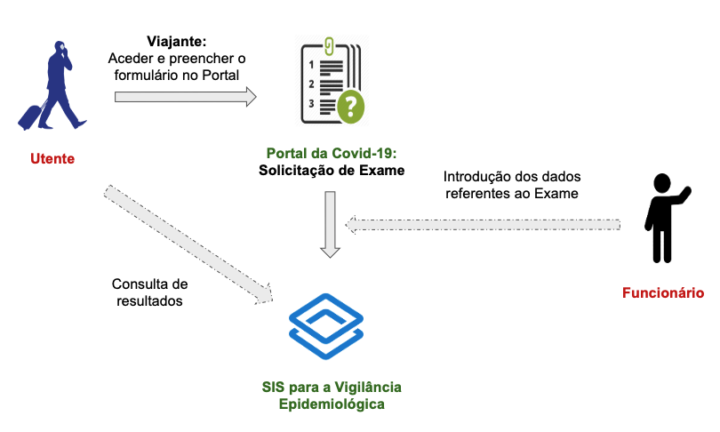
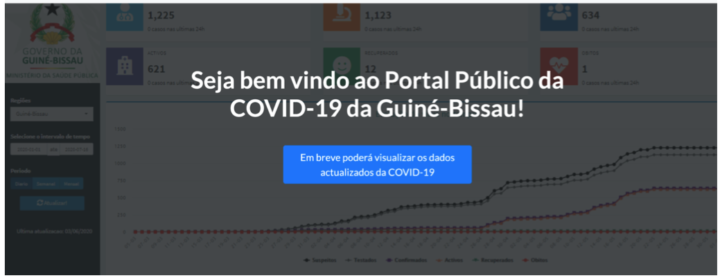
One key element of Guinea-Bissau’s strategy in responding to COVID-19 — and the work of Saudigitus in helping to carry this strategy out — has been the implementation of public-facing tools and resources. In Guinea-Bissau, this includes a public-facing dashboard where anyone can go online to see the current status of the COVID-19 pandemic on a national level. And this approach is especially innovative when it comes to systems like the Point of Entry registration and Lab test scheduling applications, where the information submitted by the public jumpstarts the process of creating their personal record in Tracker, and thus greatly simplifies the data entry burden for health workers, making the entire system function more efficiently. Both of these apps, plus the web form where members of the public can check their own COVID-19 test results, are accessible through one public-facing web portal.
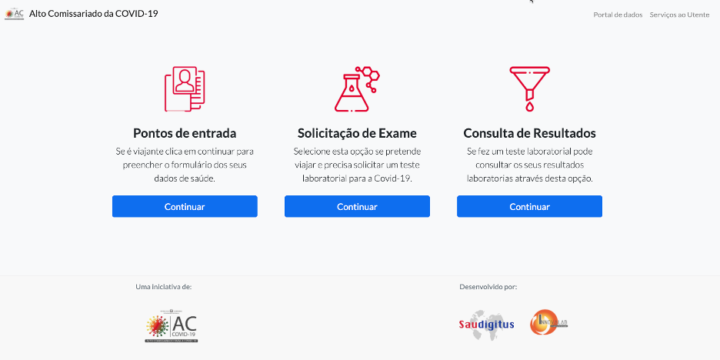
Throughout the COVID-19 pandemic, Saudigitus has provided implementation support, application development, and training not only to Guinea-Bissau but also to the four other countries in the greater African Lusophone community. The systems listed above are just a few examples of their work. Additional enhancements to these systems are under development in Guinea-Bissau, such as lab results notification by SMS. As vaccines for COVID-19 have become available, Saudigitus has leveraged their local partnerships and capacity for innovation to support the deployment of DHIS2 to manage COVID-19 vaccination campaigns in Guinea-Bissau, Mozambique, Cape Verde, and São Tomé and Príncipe.
Learn more about Saudigitus on their website: https://saudigitus.org/